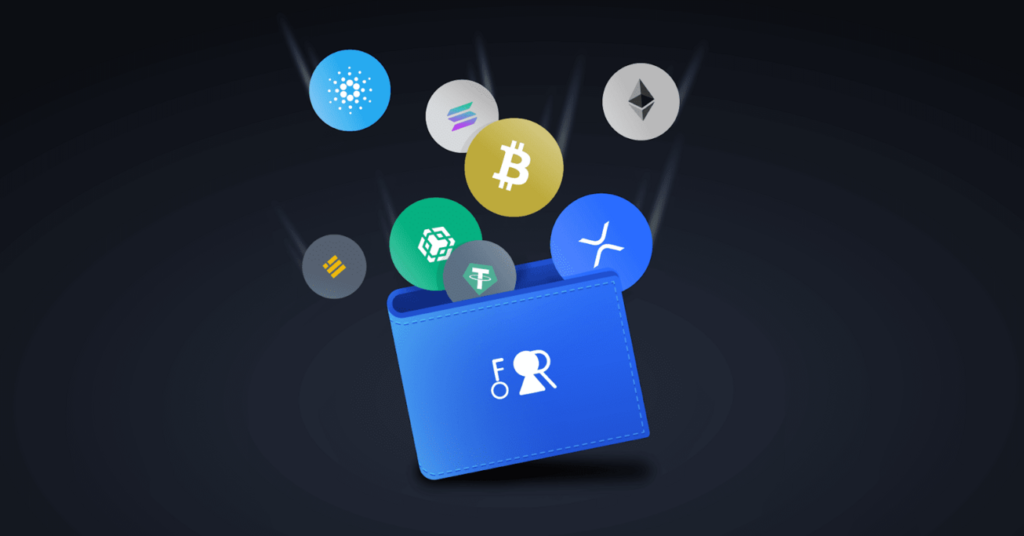As the world continues to embrace digital currencies, the importance of securing your assets has never been more critical. Whether you’re an experienced trader or a beginner in the world of cryptocurrency, understanding crypto wallets is essential for safeguarding your investments. This article will delve into what trust wallet are, the different types available, and how to choose the best one for your needs.
What is a Crypto Wallet?
A crypto wallet is a digital tool that allows users to store and manage their cryptocurrency holdings. Unlike traditional wallets that hold physical money, a crypto wallet stores the private keys (or passwords) that give you access to your cryptocurrency. Think of it as a secure digital locker for your assets. Without access to your private keys, you cannot control or spend your crypto, making security paramount.
Types of Crypto Wallets
Crypto wallets come in two main categories: Hot Wallets and Cold Wallets.
- Hot Wallets: Hot wallets are online wallets that are connected to the internet. They are ideal for frequent traders who need quick and easy access to their crypto. These wallets are typically software-based and available on desktop, mobile devices, or online platforms. However, because they are connected to the internet, hot wallets are more vulnerable to hacking and cyber-attacks.
Pros:
- Easy to use and set up.
- Accessible from anywhere with an internet connection.
- Suitable for active traders.
Cons:
- Increased vulnerability to cyber threats.
- Limited storage for large amounts of crypto.
Examples:
- Exodus Wallet (Desktop & Mobile)
- Coinbase Wallet (Mobile & Browser Extension)
- Metamask (Browser Extension & Mobile)
- Cold Wallets: Cold wallets, on the other hand, are offline storage solutions designed for long-term storage of cryptocurrency. These wallets are not connected to the internet, making them far less susceptible to hacking. Cold wallets are considered the most secure way to store your crypto, especially if you don’t need to access your funds frequently.
Pros:
- Highest level of security.
- Ideal for long-term storage of large amounts of crypto.
- Immune to online hacking attempts.
Cons:
- Less convenient for frequent access.
- More expensive compared to hot wallets.
Examples:
- Ledger Nano S/X (Hardware Wallet)
- Trezor Model T (Hardware Wallet)
- Paper Wallets (Printed Keys and Addresses)
How to Choose the Right Crypto Wallet
When choosing a crypto wallet, consider the following factors:
- Security: The most important aspect of any wallet is its security features. Look for wallets that offer two-factor authentication (2FA), encryption, and backup options.
- Accessibility: If you plan on trading often, a hot wallet might be more convenient. However, if you’re holding cryptocurrency for the long term, a cold wallet offers better security.
- Supported Cryptocurrencies: Ensure that the wallet supports the cryptocurrencies you intend to store. Some wallets only support Bitcoin, while others offer a wide range of digital assets like Ethereum, Litecoin, and altcoins.
- User Experience: A wallet should be easy to use, especially for beginners. Look for user-friendly interfaces and guides that make it simple to send and receive crypto.
- Backup and Recovery Options: It’s crucial to have a backup plan in case you lose access to your wallet. Most wallets provide recovery phrases that can be used to restore your account.
Best Practices for Securing Your Crypto Wallet
- Backup Your Wallet: Always create a backup of your wallet and store it securely in case of device failure or loss. Many wallets offer recovery phrases that can restore your access.
- Use Two-Factor Authentication (2FA): Enable 2FA to add an extra layer of security. This ensures that even if someone has access to your password, they cannot access your wallet without the second verification.
- Avoid Storing Large Amounts in Hot Wallets: For long-term storage, use cold wallets to reduce the risk of online theft.
- Be Cautious of Phishing Scams: Always double-check website URLs and never share your private keys with anyone. Scammers often use fake websites or emails to trick users into revealing their wallet information.
- Keep Your Private Keys Safe: Your private key is the key to your funds, so keep it offline and in a safe place, preferably on a hardware wallet or paper wallet.


